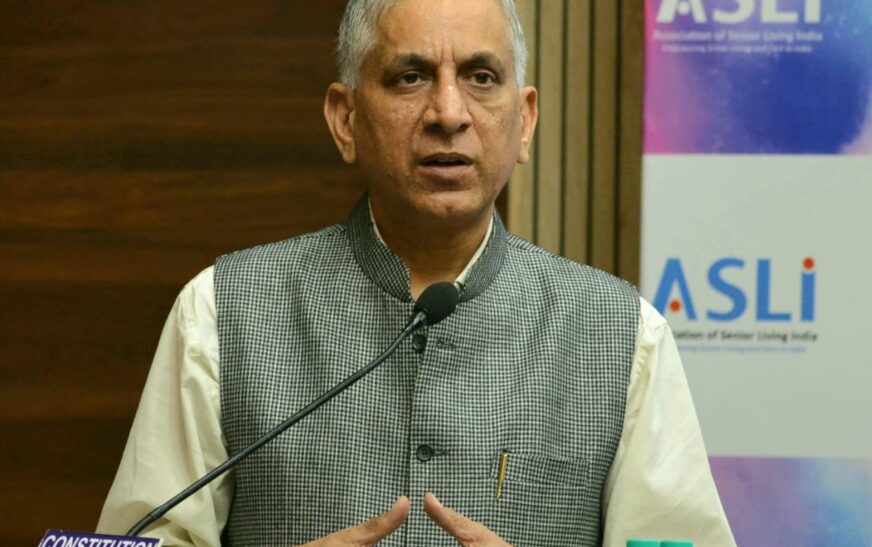The Indian government has established a robust policy framework to safeguard the well-being of senior citizens. This demonstrates its unwavering commitment to their welfare. The National Policy on Older Persons is central to this framework, which prioritizes their health, financial stability, and social inclusion. Noteworthy schemes include the PMVVY, which provides pension benefits, and the Integrated Programme for Senior Citizens, which aims to enhance housing, healthcare, and recreational amenities.
Yet, challenges remain. Policy implementation often falters, especially in rural areas with limited access to healthcare and social security. The rapidly increasing elderly population further necessitates stronger support systems, particularly in the areas of long-term care facilities and mental health services.
Enhancing the existing policy framework with a focus on digital inclusion, elder-friendly infrastructure, and community-based care can also substantially improve the quality of life for senior citizens, ensuring they age with dignity and security.
In an exclusive interview with The Interview World, Amit Yadav, Secretary, Ministry of Social Justice & Empowerment, Government of India, emphasizes how the shifting demographic landscape is driving policy reforms for senior citizens. Furthermore, he sheds light on the forthcoming policies and details the government’s current focus areas to bolster support for the elderly. Below are the key insights from this enlightening discussion.
Q: What were the key factors that prompted the recent amendments in policies for senior citizens?
A: The senior citizen population in India is rapidly increasing, signaling a significant demographic shift. Studies project that, within the next 50 to 70 years, the nation will witness a decline in the younger population while the elderly demographic expands. This shift, driven by advancements in healthcare and improved living conditions, also underscores the urgent need for strategic planning.
As a nation, we must proactively prepare for this demographic transition. It is crucial to establish robust mechanisms now to ensure that, when the shift occurs, we will support an aging population. Furthermore, this calls for thoughtful foresight and the creation of a comprehensive ecosystem dedicated to the welfare of senior citizens.
Recognizing this imperative, the government is actively introducing new policies to address the evolving needs of the elderly. These measures also aim to build a future-ready framework that supports their health, well-being, and quality of life.
Q: Can you provide details on the new policy the government is planning to introduce for senior living housing?
A: The current policy for senior living housing, established back in 1999, is now due for a major overhaul. After 25 years, it’s time to revisit and revamp this framework to align with the evolving needs of our society. We are now in the process of formulating a new policy that addresses the shifting dynamics and challenges of today’s world.
This upcoming policy will not only be nationwide in scope but will also tackle critical issues such as the health challenges faced by seniors, particularly among disadvantaged women. By addressing these pressing concerns, the new policy aims to provide comprehensive support for senior citizens, ensuring their well-being and security in the years to come.
Q: What are the key provisions in the new policy?
A: The National Policy on Older Persons is currently under review, incorporating valuable input from various stakeholders. All these contributions will undergo thorough government scrutiny. The Ministry, dedicated to senior citizens’ welfare, continuously refines the policy framework based on ongoing feedback. We actively collaborate with a wide range of stakeholders to assess the most effective ways to enhance support for the elderly.
However, it’s too early to predict the final shape of this policy. A great deal of due diligence and careful evaluation is required before any new policy is officially launched, ensuring it addresses all critical needs comprehensively.
Q: What key areas is the ministry focusing on to enhance the welfare of senior citizens?
A: The Ministry is currently focused on two major initiatives. The first is developing a new policy for senior citizens. The original policy, introduced in 1999, is now being re-evaluated after extensive consultations with stakeholders. We are in the process of crafting an updated policy that not only addresses the current needs but also sets a clear direction for the next 25 years, reflecting the evolving dynamics of our aging population.
The second area of focus involves revising the existing legislative framework. Specifically, we are looking at the Maintenance and Welfare of Parents and Senior Citizens Act of 2007. This Act, which has been in place for several years, is undergoing amendments to incorporate feedback and address challenges identified over time. Our goal is to ensure that the updated legislation is more comprehensive and responsive to the needs of senior citizens.
These two key projects—the new policy framework and the legislative amendments—are critical components of our ongoing efforts to enhance the support system for the elderly in our country.









